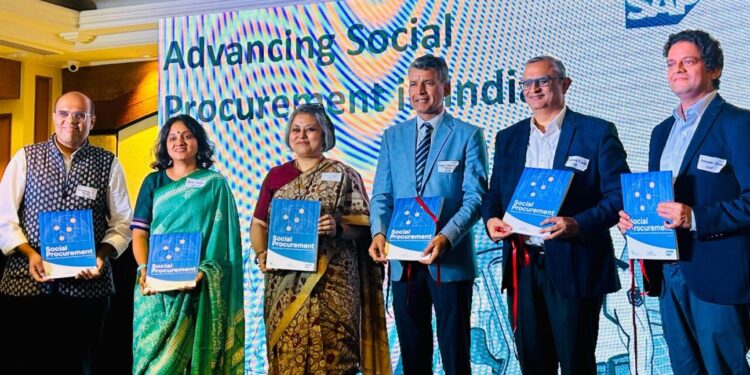Mumbai, January 13, 2025 — SAP India has announced its social procurement program to support social enterprises and aims to include them in corporate value chains and align with the nation’s development goals.
According to the World Economic Forum, India has over 2 million social enterprises, with about 25% run by women. These enterprises work in many areas like healthcare, education, agriculture, clean energy, finance, and sanitation. They focus on creating sustainable practices while promoting inclusion and local entrepreneurship. SAP plans to work with industry partners to help these businesses thrive and encourage more companies to buy from them.
When businesses purchase from social enterprises, they positively impact communities and the environment while also meeting their own corporate social responsibility (CSR), diversity, and sustainability goals.
This area is still developing but has a lot of potential, as many businesses see positive results from including social enterprises in their supply chains.
The social procurement initiative aligns with the Government of India’s programs like the Government eMarketplace (GeM), Open Network for Digital Commerce (ONDC), Make in India, and support for Farmer Producer Organizations (FPOs).
Social Procurement Program aims to:
1. Promote sustainable manufacturing
2. Support local innovation and entrepreneurship
3. Support farmers and create jobs:
Launching the program in India, Manish Prasad, President and Managing Director of SAP Indian Subcontinent, said, “This initiative underscores our commitment to ensuring that good, ethical, and sustainable corporate practices are woven into the fabric of business. By collaborating with social enterprises and nurturing alliances across our ecosystem, we can transform procurement decisions into an opportunity to uplift communities, generate jobs, and drive sustainable and equitable growth across the communities we operate. Social procurement can potentially be a transformative tool to improve people’s lives.”
Also Read: The Loneliness Epidemic in Urban Areas: A Mental Health Perspective




















